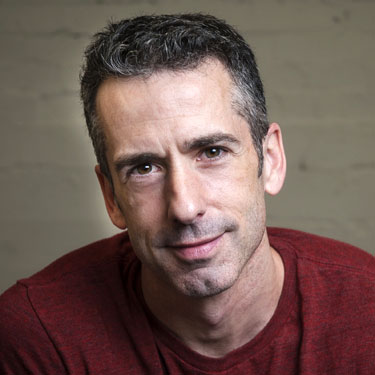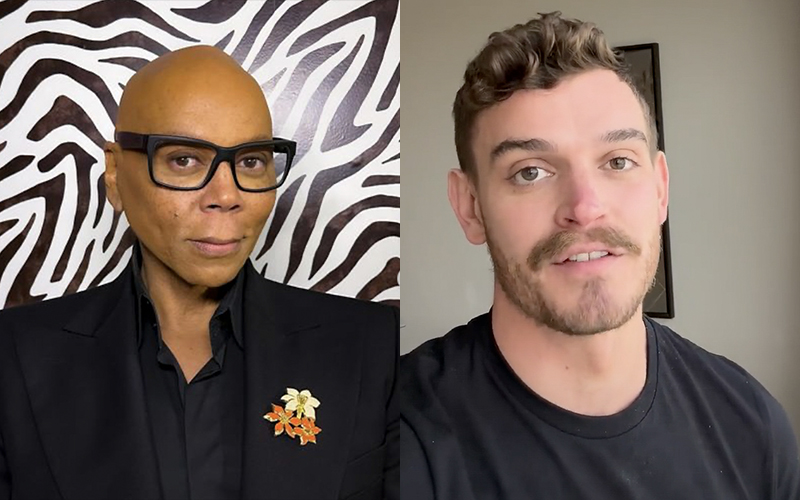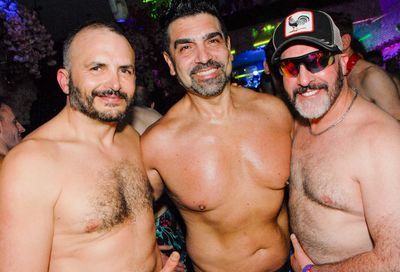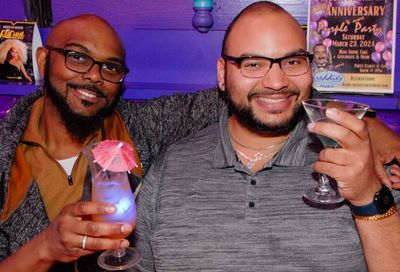Savage Intent
Dan Savage, media's gay enfant terrible, keeps pushing for a more just, sex-positive society

Dan Savage
(Photo by LaRae Lobdell)
MW: That’s true, you don’t view the world as a black-and-white construct.
SAVAGE: I don’t have the luxury of standing at the pulpit and saying, ”Thou shalt not.” When you get into the weeds, when you get into relationships, when you get into multi-decade long-term relationships, marriages with children, the right thing to do isn’t always obvious. It isn’t always black and white. Sometimes the right thing to do is the less-wrong thing, not an absolute pure-right thing.
MW: How many questions do you get in a week on average?
SAVAGE: About 5,000. Easily half of the mail is, ”You’re right,” ”You’re wrong,” ”I agree with you,” ”I disagree with you.” So half the mail isn’t questions, it’s just people wanting to sound-off on whatever it was I was writing about or talking about on the podcast. I like the feedback.
MW: Do you read all of it?
SAVAGE: I try! I don’t have an assistant. Half the mail now, people say, ”Dear Dan or whoever reads his mail for him.” I read my mail for me. Only I read my mail. I don’t have an intern. I don’t have anybody.
MW: So you can only respond to a fraction of them?
SAVAGE: There’s no way I can respond to every question. There’s no way anyone with a syndicated advice column could ever respond to every question. There are just too many questions.
MW: How have the topics changed in the 22 years that you’ve been writing ”Savage Love”?
SAVAGE: It’s changed a great deal. Generally people are more kink-positive now. People are less freaked out by anal sex or bondage or watersports. It’s an ongoing conversation that the column has been a part of about what people are actually doing in bed, and kind of a de-stigmatization of standard-issue kinks.
But the real difference for me and my column: My column pre-dates the post-AIDS arrival of the Internet — Wiki, Google, all of those things. And pre-Internet, pre-Google, pre-Wiki, half the questions were, ”What’s a cock-ring?” ”Fist-fucking, how do you do it?” [Laughs.] ”I live in Atlanta. Where is the BDSM group in my area?” Or, ”Are there swingers clubs near me?” So, half the columns I would just write about what a cock-ring was, refer people to the BDSM groups or swingers clubs in their area. I don’t get those questions anymore – because butt plugs have a Wiki page. [Laughs.]
I don’t get to write the easy columns anymore. All of the mail now is hard: This is what I did, this is what my partner did, this is the problem we have, this is the situation we’re in, this is our medical crisis. They’re really situational ethics, almost always now. Where you’re just parsing and thinly slicing a series of unfortunate events, to borrow a phrase, and having to issue a ruling about who is in the wrong. Those columns are so much harder to write than how to get an arm into your ass. [Laughs.]
MW: That must make it more interesting, because you’re being challenged to a degree you weren’t before.
SAVAGE: It does. And it gives me a better window, I think, onto peoples’ actual sexual dilemmas. And I think it’s ultimately why I’m much more realistic about the place of absolute fidelity in a multi-decade, long-term relationship. You know, my sample is skewed. I hear from people with problems. I don’t hear from people that monogamy and marriage are absolutely working. Most of what I hear is just very depressing. Lots of sexless marriages. Lots of people who are insanely frustrated, have been cut-off, lots of sexual dysfunction. And a lot of it can be traced back to the impossible strain we’ve placed on marriage, by saying the only place where you are allowed to find sexual fulfillment is in marriage with your partner. It puts more weight on that relationship – over the course of four or five decades – than many of the relationships can bear.
MW: I’m guessing that in the 22 years you’ve been writing the column, it’s also had an impact on your sex life.
SAVAGE: [Laughs.] Yeah, I think so. I was never really that invested in strict monogamy, after I gave it a whirl in my early 20s and realized that I was no good at it, that it was slightly unrealistic. But, in the abstract, I still bought into a lot of the cultural myths about it, that it came more easily to many other people.
What I’ve learned over the years is that it comes easily to almost no one. What comes easy is posturing and preening, and everyone – in public – giving lip service to the ideal, and in private cutting all sorts of different bargains with themselves and their partners. Those bargains need to be out in public. People will write me and say, ”I don’t know anybody who’s ever been in an open relationship or even had a three-way where the relationship didn’t end, where it wasn’t a disaster.” And I’m constantly pointing out that there are lots of people out there in ”monogamish” or open-relationships who are successful. You know many of those people, but you don’t know that they’re in a non-monogamous relationship because the stigma is so great that most people that are in open relationships don’t tell anybody about it. Particularly straight couples, who don’t tell their friends, neighbors, co-workers that they’re not monogamous. We only hear, typically, about a three-way or a non-monogamous relationship when it ends. When cheating or a three-way was a disaster and it leads to the destruction of the relationship, we all hear about it. When a couple’s having lots of three-ways and lots of fun and it’s good for them and it makes their bond stronger and it’s really pleasurable and it’s something they really enjoy doing together, they don’t tell their parents about that. They don’t tell their co-workers. They move through life allowing everyone to assume that they’re sexually monogamous when they’re merely socially monogamous.
MW: You must feel some responsibility to share your own experiences in relationships.
SAVAGE: That’s a funny story. When I wrote The Kid, the book about Terry and I adopting our son, we were monogamous. At Terry’s insistence. And so I just sort of briefly mentioned it. Seven years later, I think it was, I was writing The Commitment, about our decision to marry. In that time, between adopting and marrying, we had become non-monogamous. We had become ”monogamish,” a term I coined.
As a gay dude, you say you’re not monogamous and other gay people assume a level of promiscuity that just wasn’t accurate. You know, we occasionally have three-ways or whatever, [but] we’re much more monogamous than not.
So I was sort of trapped, because I’m writing this book about our marriage, talking about my parents’ marriage, my brother’s marriage. I was like, well, I can’t not come clean now, because if I don’t mention that Terry and I are not monogamous in this book, and it’s ever found out — because the religious right goes through my dirty laundry and digs through my trash — they’ll claim we were lying and we misrepresented ourselves when I wrote The Kid. So I kind of had to come clean. It was never my intention to become the poster boy for not-monogamous gay marriage, but I sort of painted myself into a corner and had to do it.
Support Metro Weekly’s Journalism
These are challenging times for news organizations. And yet it’s crucial we stay active and provide vital resources and information to both our local readers and the world. So won’t you please take a moment and consider supporting Metro Weekly with a membership? For as little as $5 a month, you can help ensure Metro Weekly magazine and MetroWeekly.com remain free, viable resources as we provide the best, most diverse, culturally-resonant LGBTQ coverage in both the D.C. region and around the world. Memberships come with exclusive perks and discounts, your own personal digital delivery of each week’s magazine (and an archive), access to our Member's Lounge when it launches this fall, and exclusive members-only items like Metro Weekly Membership Mugs and Tote Bags! Check out all our membership levels here and please join us today!

























